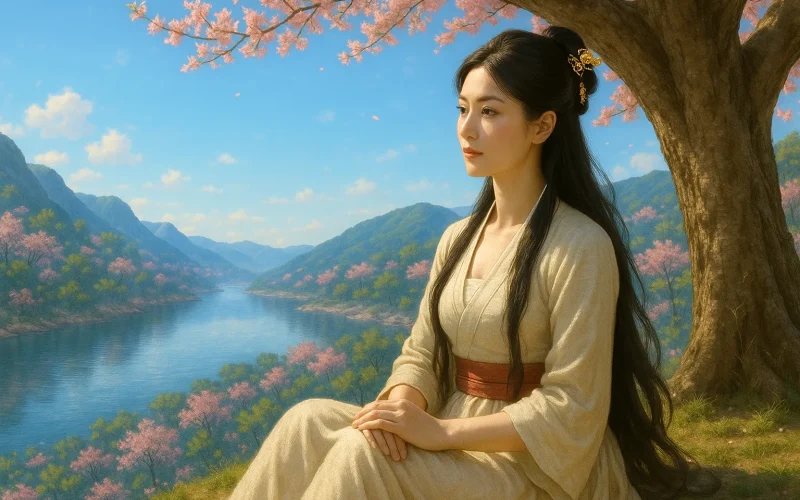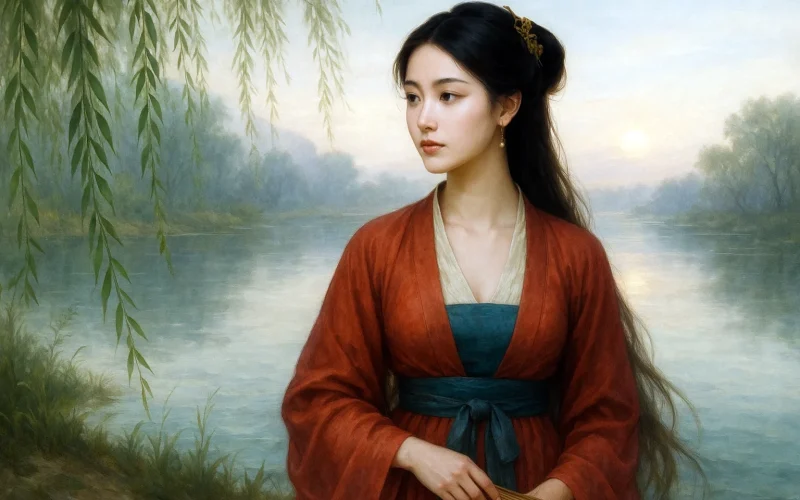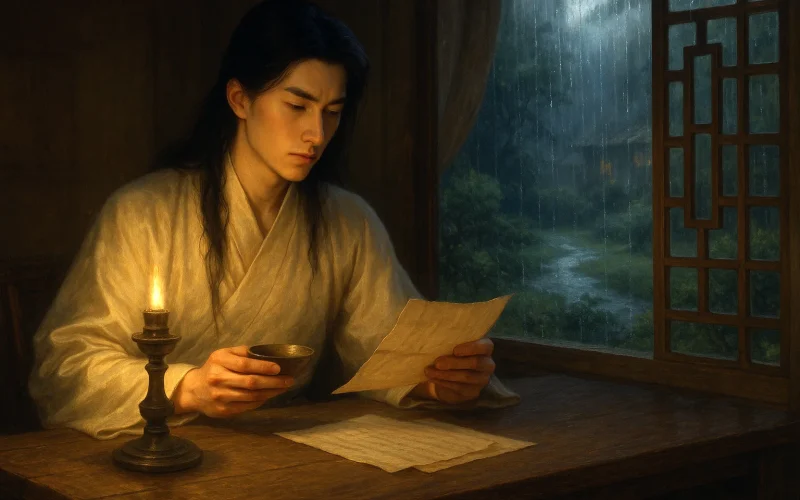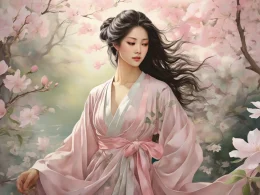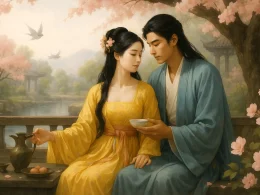The mountain's red with peach blossoms above;
The shore is washed by spring waves below.
Red blossoms fade fast as my gallant's love;
The river like my sorrow will ever flow.
Original Poem:
「竹枝词 · 山桃红花满上头」
刘禹锡
山桃红花满上头,蜀江春水拍山流。
花红易衰似郎意,水流无限似侬愁。
Interpretation:
This poem is the second of the "Nine Bamboo Branch Songs" by the Tang dynasty poet Liu Yuxi, composed during his tenure as the Governor of Kuizhou. It is set to the tune of local folk songs from Sichuan. The entire set of poems explores themes of landscapes, customs, and love between men and women, rich with the breath of life. This particular poem expresses the sorrow and resentment of a deeply affectionate woman after her love encounters disappointment, highlighting her disillusionment and pain.
First couplet: “山桃红花满上头,蜀江春水拍山流。”
(In spring, wild peach blossoms fill the mountaintop, and the waters of the Shu River crash against the cliffs, flowing eastward.)
The poet sets the atmosphere by describing the spring scenery. The mountains are covered with blooming peach blossoms, and the river's waters crash against the cliffs, presenting a natural and harmonious beauty. However, this beauty becomes a painful reminder for the woman in the poem. The scenery she observes evokes deep sorrow within her heart.
Second couplet: “花红易衰似郎意,水流无限似侬愁。”
(The red of the flowers fades easily, just like the affection of my lover; the water flows endlessly, just like my unending sorrow.)
In this couplet, the poet uses a metaphor to compare the flowers with love and the river with the woman's sorrow. The red blossoms fade easily, much like a man's love that often fades quickly. On the other hand, the river’s continuous flow represents the woman’s sorrow, which seems endless. This striking contrast emphasizes the woman’s ongoing heartache caused by her unrequited love.
Writing Features:
- Use of metaphor
The poet skillfully employs the technique of "bi-xing," where natural scenes are first described, and then these scenes are connected to the emotions of the characters, creating a powerful symbolic meaning. The blooming and withering of the peach blossoms, and the flowing and halting of the river, vividly express the changes in the poet's emotions and the inner helplessness and sorrow of the character. - Vivid and evocative metaphors
The metaphors of "flower red fades easily" and "water flows endlessly" are both vivid and compelling. They allow the reader to experience the beauty of the natural scenery while also feeling the emotional turmoil of the character. Through these metaphors, the poet conveys the fragility of love and the endless nature of sorrow. - Profound expression of emotion
By describing the inner feelings of the woman, the poet conveys the loss of love and the inescapable pain she endures. The woman's sorrow is not only the sadness of a broken relationship but also a deep fear of an uncertain future. The natural imagery further enhances the depth and vividness of the emotional expression.
Overall Analysis:
This poem uses the technique of "bi-xing" to reflect the character's emotions through descriptions of natural scenes, making the poem highly expressive. The first two lines describe the beauty of spring — the peach blossoms and the river, but this beauty starkly contrasts with the woman's suffering. The latter lines cleverly connect the withering of the flowers and the endless flow of the water to the transience of love and the boundlessness of sorrow, deeply portraying the woman's helplessness and resentment after encountering setbacks in love.
Poem translator:
Xu Yuan-chong (许渊冲)
About the poet:
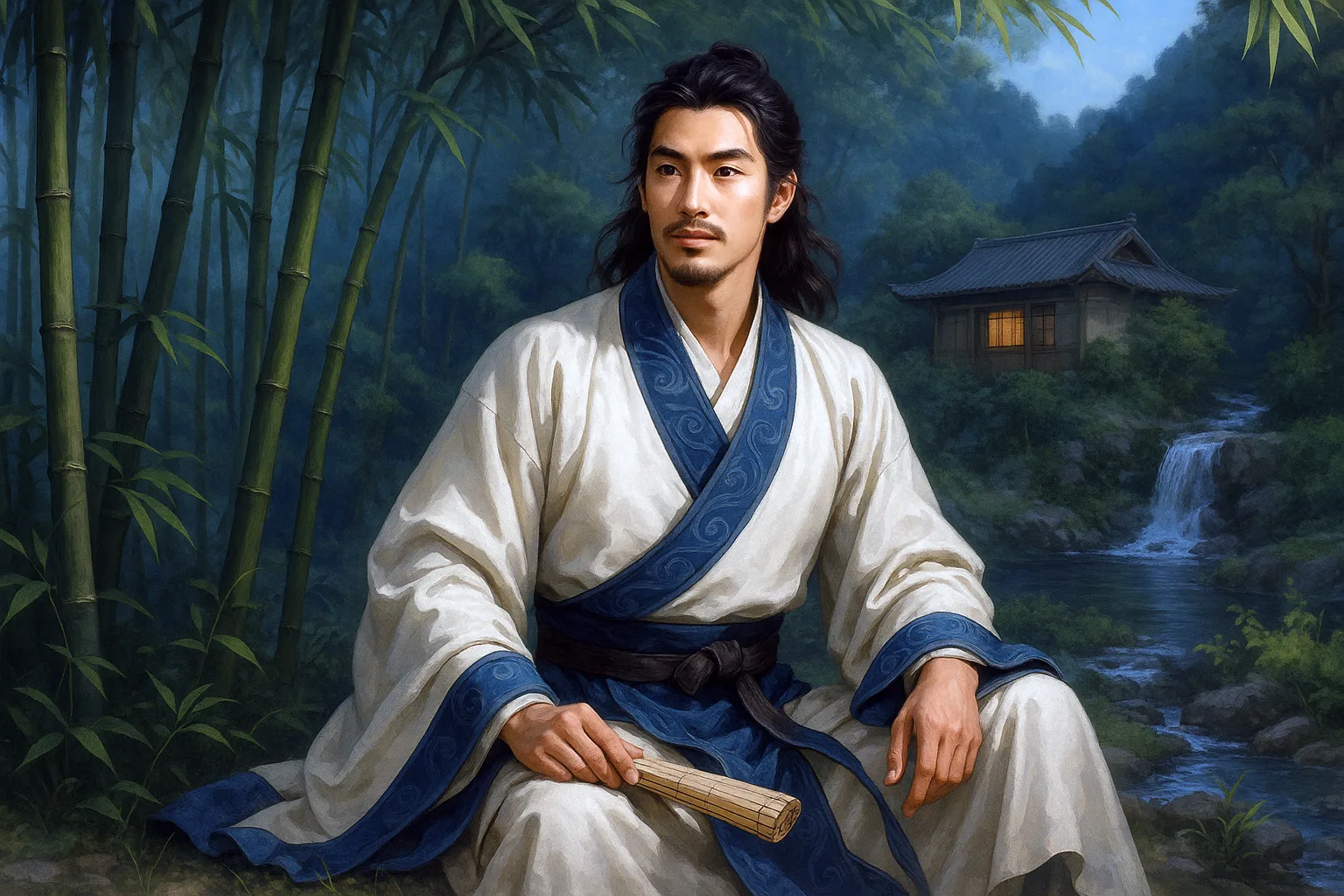
Liu Yuxi(刘禹锡), 772 - 842 AD, was a native of Hebei. He was a progressive statesman and thinker in the middle of the Tang Dynasty, and a poet with unique achievements in this period. In his compositions, there is no lack of poems reflecting current affairs and the plight of the people.






